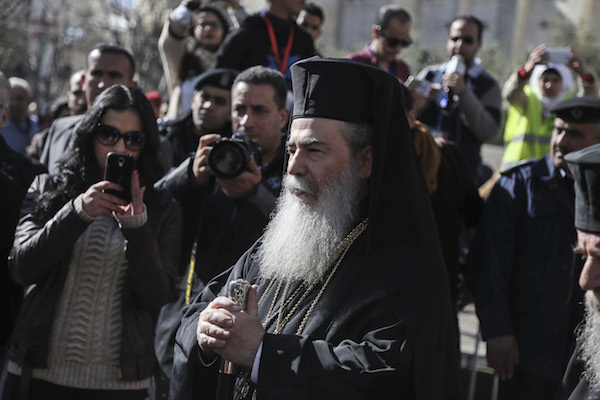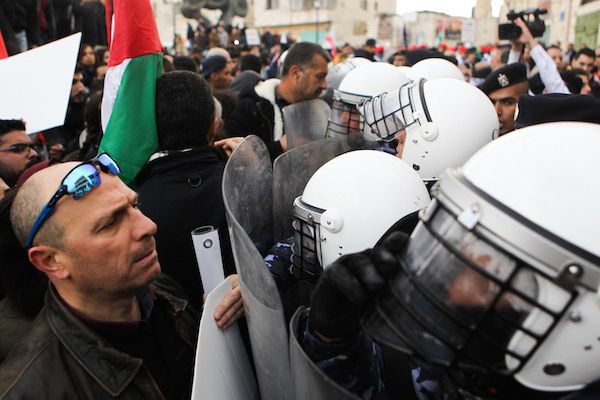A bill to expropriate church property and a plan to charge the church 650 million NIS in back taxes prompt protest from Christian leaders.

Christian leaders announced that the Church of the Holy Sepulcher, one of the holiest sites in all of Christianity, will be closed indefinitely to protest a Knesset bill that will allow the government to seize church land, as well as a plan to tax church property.
In a statement released Sunday, the heads of the Greek Orthodox, Roman Catholic, and Armenian churches, the bodies responsible for governing the Holy Sepulcher and other Christian holy sites, denounced what they are calling “a systematic” and “offensive” campaign “against the Churches and Christian community in the Holy Land, in flagrant violation of the existing Status Quo.”
The Knesset bill will reportedly allow the government to expropriate property sold by the churches to private companies over the past decade. The government will compensate the private companies that purchased the land.
The story, however, is more complicated than the Church simply protesting Israeli policy. The bill was proposed following reports that the Greek Orthodox Patriarchate of Jerusalem had sold off several million dollars-worth of property in Caesarea, Jaffa, and Jerusalem to companies that remain anonymous because they are registered in tax shelters — including to the settler group Ateret Cohanim, which is attempting to Judaize Palestinian neighborhoods in East Jerusalem.
The Church owns the property it recently sold, but in most cases had leased it to the Israel Land Authority or the Jewish National Fund (JNF), typically for 99 years, which then sold it to individual owners. When news of the Church’s deals surfaced, apartment owners reportedly began to panic, fearing that when the leases to the JNF or Land Authority expire in 30 years they will lose their property, which will transferred to the new, anonymous owners who purchased the property from the Church.
Palestinians have protested the Church’s sale of its property — at prices that critics say are far below the actual value — to unnamed companies and, in particular, to Ateret Cohanim. Hundreds of Palestinian citizens of Israel demonstrated against the Greek Patriarch Theosopholis III in Nazareth in September, following the final announcement of the Church’s sale of property in East Jerusalem to the settler group. When Patriarch Theosopholis III visited the city of Bethlehem in the occupied West Bank for a Christmas ceremony in January, Palestinian demonstrators blocked his car, threw stones, and yelled “traitor.”

Meanwhile, Jerusalem Mayor Nir Barkat claims the churches owe 650 million NIS in unpaid municipal property taxes on property used for non-religious purposes. “It doesn’t make sense that commercial property like hotels, auditoriums, and businesses are exempt from paying municipal taxes just because they’re owned by churches,” Barkat tweeted on Sunday.
“This systematic and unprecedented attack against Christians in the Holy Land severely violates the most basic, ab antiquo and sovereign rights, trampling on the delicate fabric of relations between the Christian community and the authorities for decades,” said Theophilos III, Patriarch of the Greek Orthodox Church in Jerusalem, in an address Sunday afternoon. “As a measure of protest, we decided to take this unprecedented step of closure of the Church of the Holy Sepulcher.”
PLO Executive Committee Member Dr. Hanan Ashrawi also denounced the Knesset bill and the Jerusalem municipality’s plan to tax church property, calling it a “very egregious and dangerous violation of the status quo that has governed the status of Christian churches in Palestine for centuries.”
“Such forms of legislation deliberately target the Churches, their communities, assets, and property as a way of maintaining exclusivity and Jewish control. This is part of the further escalation in Israel’s policies to isolate Jerusalem and ethnically cleanse its Palestinian population from the city,” said Ashrawi.

